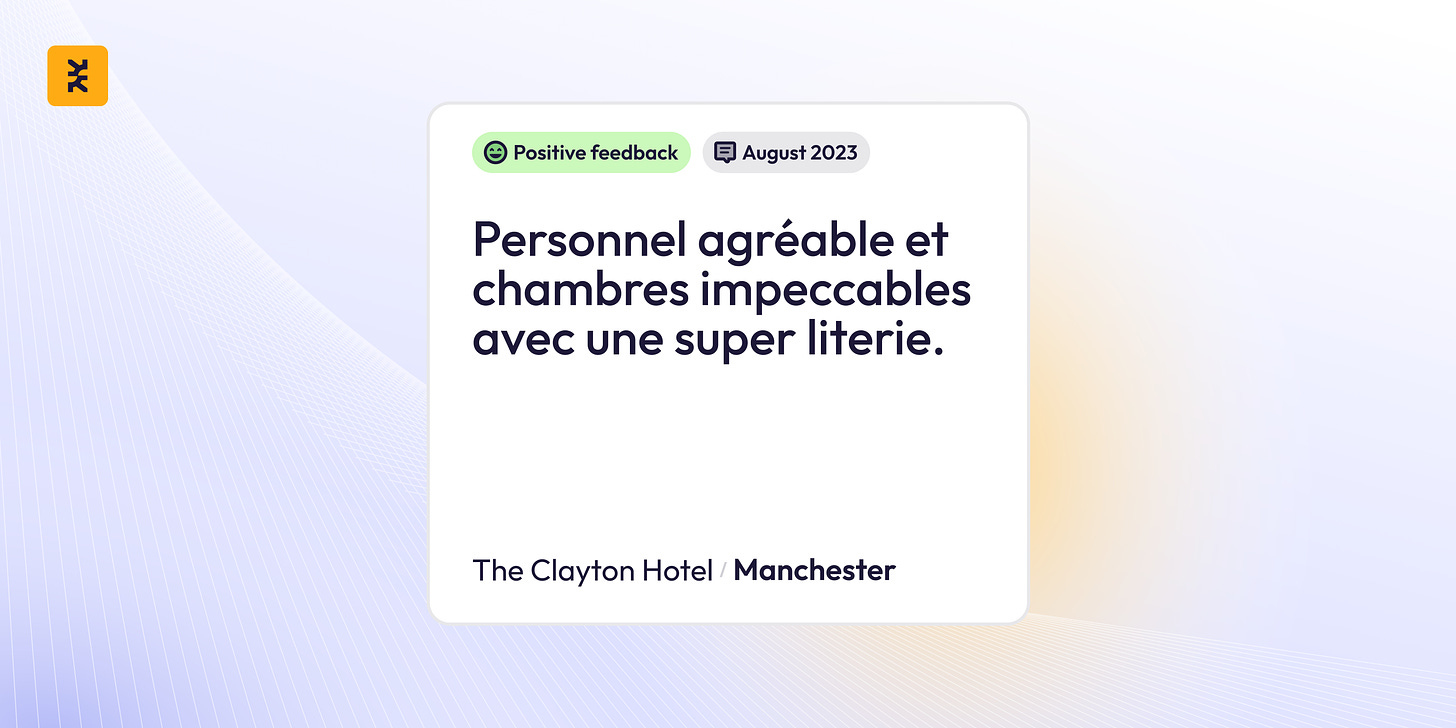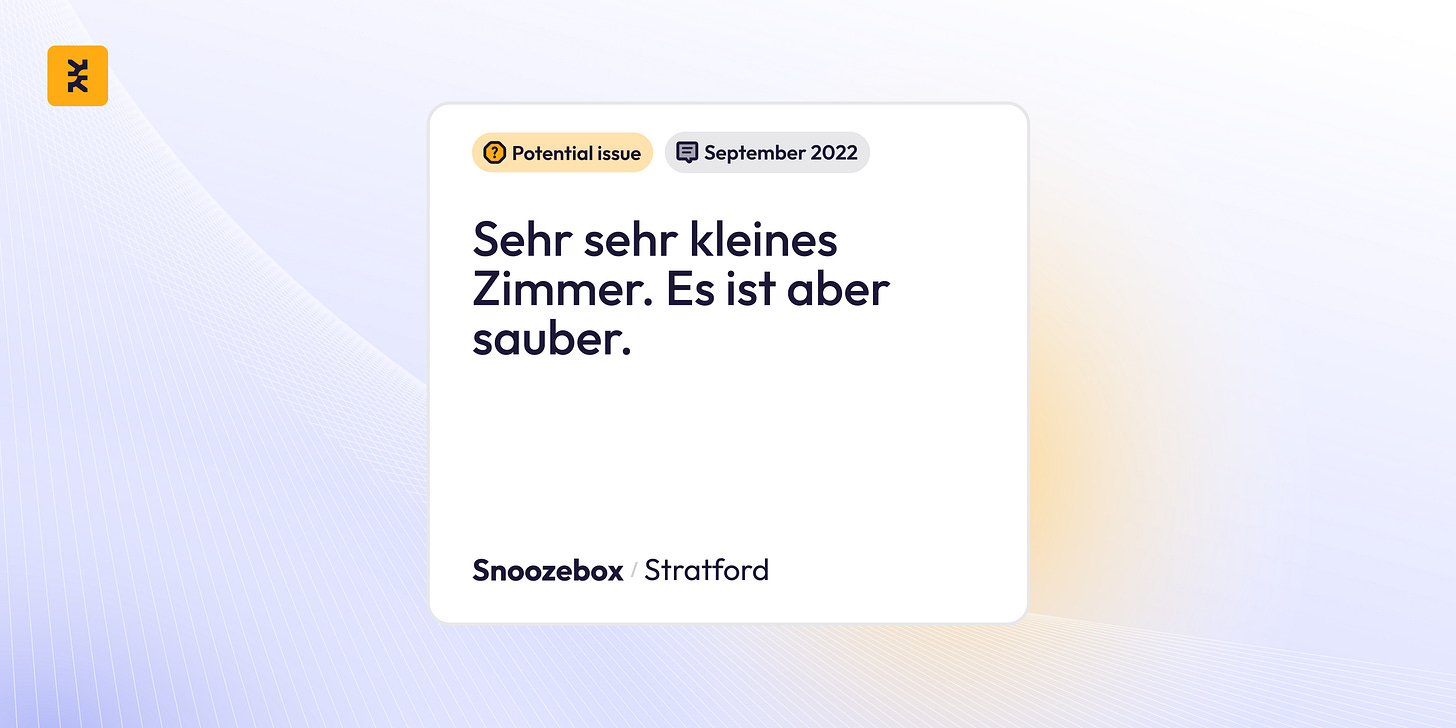In the hospitality industry, feedback can arrive in any language. It’s part of what makes this industry so exciting—you’re dealing with a diverse, global audience.
But how do you handle feedback in 15 different languages without losing the richness of what’s being said?
Why Multilingual Feedback Is Tricky
Guests express themselves best in their native language. A direct translation can’t always capture the nuances of what they mean—and sometimes, even automated translations can muddy the waters.
Take this example: A French guest might write, “Chambres impeccables” (“Impeccable rooms”). If your system is just scanning for the word “clean,” this positive feedback might not even register. On the flip side, keywords like “clean” could just as easily pop up in a negative review like, “The bathroom wasn’t clean at all.” Context matters—and that’s where keyword approaches often fall short.
Multilingual feedback adds an extra layer of complexity. Words don’t always have one-to-one translations. Idioms, slang, and synonyms create gaps that rigid keyword matching simply can’t bridge.
A Smarter Way to Approach Multilingual Feedback
So, what’s the solution? It starts with rethinking the process:
Analyze Feedback in Its Original Language: Keeping feedback in its native language for analysis helps preserve nuance, tone, and cultural context.
Translate for Presentation Only: Once the key insights are extracted, translating them for internal teams or stakeholders ensures clarity without compromising accuracy.
This way, you’re not relying on rigid keyword matches or risking the loss of meaning through premature translation.
How Sunbeam Tackles the Problem
At Sunbeam, we’ve built our platform to process guest feedback in its original language, no matter what that language is. By focusing on meaning rather than just words, we sidestep the pitfalls of keyword-based systems.
Native Language Analysis: Sunbeam analyses sentiment, themes, and patterns directly in the original text. This means no cultural details get lost in translation—we capture the meaning behind what’s being said.
Context-Driven Insights: Instead of matching words, we identify intent and context. Whether the guest is thrilled about the view or unhappy about the noise, we deliver accurate, actionable insights.
Flexible Translation Options: After analysis, feedback can be translated for internal teams or presentations, ensuring clarity while preserving the original meaning.
Example: Bridging the Gap Between Languages
Let’s put this into context. Imagine a German review that says, “Sehr shr kleines Zimmer. Es ist aber sauber” (“Very, very small room. But it is clean.”).
A keyword-based system might flag this as negative because it focuses on “kleines” (“small”). Sunbeam identifies both the positive sentiment about the cleanliness and the mild dissatisfaction with room size. You get a complete, balanced picture of what the guest is saying and you know exactly what they think.
Handling multilingual feedback is challenging, but it doesn’t have to mean sacrificing accuracy or detail. By analyzing feedback in its native language and translating only when necessary, you can preserve the richness of guest insights while making them accessible for your team.





